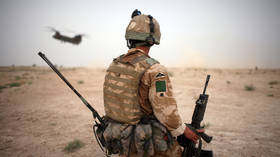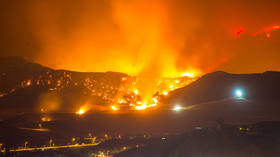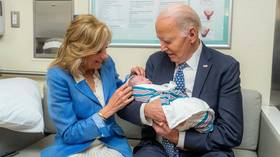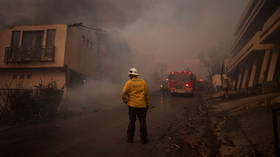‘New Iron Curtain emerging along the border of Ukraine and Russia’
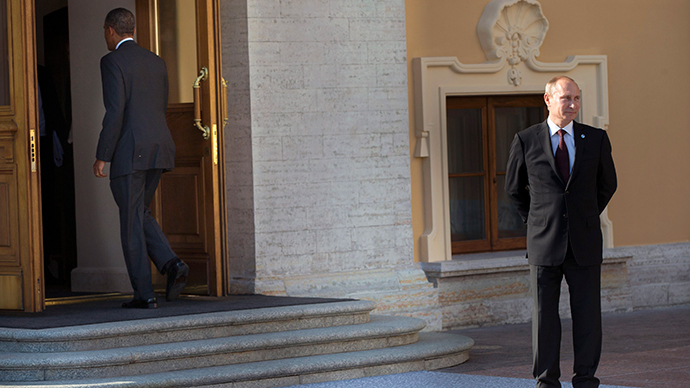
70 years after the Yalta Conference that marked the final months of the World War II, Russia is facing a threat of isolation, with President Putin being “demonized” – something that British professor Richard Sakwa considers to be “extremely dangerous.”
“Russia has not been taken seriously – ultimately, since [the] Malta [Summit]. That was the moment when the idea of the Soviet Union and then Russia was lost as a genuine source of innovation and thinking on European security,” professor of Russian and European politics at the University of Kent, Richard Sakwa, explained one of the reasons behind the escalation of the ongoing Ukrainian conflict in an exclusive Thursday interview to RT.
“This continental crisis which we are now witnessing is all about failure of communication, failure of trust, and of course, the attempt to delegitimize either side.
Now we see the demonization of Putin, we see the attempt to delegitimize the Russian government, which I think is extremely dangerous,” Sakwa added.
READ MORE: NATO involvement in Ukraine is ‘destructive’ – Russian envoy to alliance
Calling the Ukrainian crisis “the one which has brought war back to the center of the continent,” the professor urged the “use diplomacy to find a way forwards.” In the “multi-pluralistic” world system, introduced in the XX century, it is crucial to consider interests, views and traditions all players, large and small ones. That is, with no room for a “disastrous and catastrophic way,” unfortunately chosen by “both sides to impose their views on world order and on security issues,” according to Sakwa.
The expert also stressed the important role the European Union could play in finding solution to the current crisis, “because there is a danger at the moment of [the] Ukrainian crisis becoming a genuine international conflict.” To achieve what the Minsk peace process has failed to – and the current level of escalation, and rhetoric, and violence suggest that it “is really coming to an end” – the EU should act as “an independent force,” and “as a friend to all and an enemy to none”.
READ MORE: Hollande, Merkel go to Moscow to discuss Ukraine without consulting US – report
However, the modern phenomenon, dubbed “New Atlanticism” – the rapprochement of Brussels and Washington – has some drawbacks, as “in geostrategic terms … it removes an independent player from the equation,” while isolating Russia and undermining the ability of the EU to act independently.
Sakwa concluded, “What we do need is all sides come together in … a new Yalta Conference … to establish the new basis for European security for the future.”
The Yalta Conference united three leaders of world powers – US President Franklin Roosevelt, British Prime Minister Winston Churchill and Soviet General Secretary Joseph Stalin – in February, 1945, in Crimea, with the aim of defining the new post-war world order.
Within the framework of the seven-day-long conference, allied forces examined plans to divide Germany, formulated an agreement on Poland, and a declared their readiness to establish the United Nations organization to maintain peace and security.
A military operation in eastern Ukraine commenced last April, after rebels in Donetsk and Lugansk regions refused to recognize the new authorities in Kiev, and the situation escalated in further in January, with constant shelling striking civilian areas. According to UN estimates, over 5,000 people have been killed since the beginning of the conflict.
The statements, views and opinions expressed in this column are solely those of the author and do not necessarily represent those of RT.



